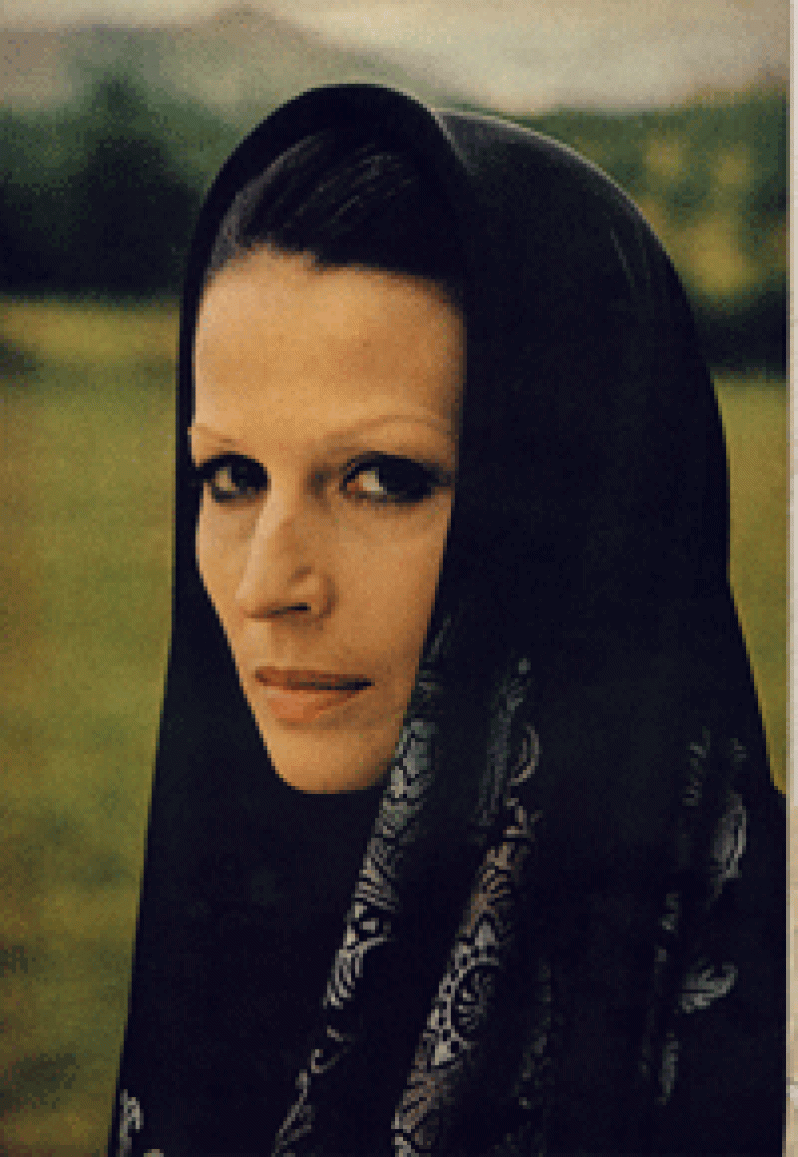TAKEN as a whole, most of Mangano’s film roles represent a resistance to the stereotyping of human character. Her door remains open again and again to personal transformation, which, after her sensational ‘femme fatale’ role in de Santis’ ‘BITTER RICE’, took a mostly positive direction.  This transformation, or gradually exposed contrast between two positions in her film roles, is not only valuable on the level of content, but on the level of an artistic stance represented by the films she chose to do. This is one major reason why Mangano never developed into a ‘star’, dominating her films comparable to what the commercial Hollywood ‘star-system’ cultivates.
This transformation, or gradually exposed contrast between two positions in her film roles, is not only valuable on the level of content, but on the level of an artistic stance represented by the films she chose to do. This is one major reason why Mangano never developed into a ‘star’, dominating her films comparable to what the commercial Hollywood ‘star-system’ cultivates.
Mangano, instead, is mostly always integrated in the overall quality her films possess beyond her contribution. Her films, as a whole, tend to represent a resistance to the increasing sterilization and neutering of the cinematic and literary arts in a wishful technological ‘Utopia’ of social designs, reducing art as an individual creation to a natural death, like a side effect in the futuristic lifestyle of mass automatons.
Classic literature
The beauty and power of Mangano’s diverse roles also draw sustenance and perennial human meaning from Italy’s classic literature, centuries old, which has long put up resistance to the stereotyping and sheepish robotizing of human behaviour and character.
Her inclusion in another Pasolini film in 1971, ‘THE DECAMERON’, an adaption of the ribald and amusing tales of Bocassio, is a good example. Bocassio’s tales hilariously reveal where social pretentions, mannerisms and conventions can come into resistance from the natural urge to satisfy the erotic appetite, or to simply reassert one’s individual playfulness in an artificial social environment.
In Bocassio’s tales of women who are not what they appear to be, Pasolini found a chance to involve Mangano in a delightful film of human transformation. Also in ‘The Decameron’, Pasolini himself clearly showed his sympathy for the artist’s life by appearing as maestro Raphael, travelling on foot with his bundle and brushes; taken in by admiring peasants at night along the way; sleeping under carts; gaffing around their camp fires; and sharing their food while on his way to another town to paint another great work.
Mangano, in many of her roles, consistently showed much understanding and care for stereotyped characters condemned to the wayside of society as misfits, outcasts, or slandered loners.
Feminine defense
1971 also saw her appear in ‘DEATH IN VENICE’, adapted from the Thomas Mann novella and directed by the aging Italian master director, Luchino Visconti. The film perhaps had a built-in premonition of its three leading artists’ careers coming to an end: Visconti, lead actor Dirk Bogarde, and Mangano, who, among Venice’s fading grandeur, demonstrates her minimal un-dramatic acting as the elegant mother of an effeminate young boy doted upon by an obsessed, dying homosexual artiste, played by Bogarde.
Mangano’s silent, sophisticated, watchful presence is like an eternal feminine value their neuter male relationship cannot erase. Her return under Visconti’s direction in 1975’s ‘CONVERSATION PIECE’ produced another powerful example of her body-and-soul duality, where Burt Lancaster is the aging professor who rents part of his decaying Italian mansion to a dysfunctional radical family.
The famous scene of Mangano’s daughter’s nude appearance to professor Lancaster in his study among his papers, paintings, and classic volumes set an attractive precedent for examples of the resistance of the body’s warmth to the often frigid calculations of intellectual schemes. We see it continued in Marco Bellocchio’s brilliant film of 1986, ‘DEVIL IN THE FLESH’, when rebellious Maruchska Detmers undresses and rushes naked into her lover’s father’s legal office, contrasting her natural beauty with its objects of glass, metal, and synthetic material.
Farewell classic
It was not surprising that Mangano, in her final unforgettable film, ‘DARK EYES’ of 1987, wonderfully directed by the new Russian director, Nikita Mikhalkov, co-starred with the man to whom she really owed her career as a screen star: The unforgettable Marcello Mastroianni, easily one of the greatest actors Italy and the world has ever known, the quintessential intellectual playboy or ladies man, and an example of heterosexual quality.
Mangano’s long-kept secret was that she had been one of Mastroianni’s lovers even before her 1950 debut in ‘Bitter Rice’. Her role in ‘Dark Eyes’ as the ironically delightful wife poking fun at her idle, dreamy, artistic husband, played by Mastroianni, whom her wealth supports, was a beautiful, defiant last act of love for the creative misfit before she left us in 1989 , at age 59, after a long nagging illness.
Silvana Mangano left the world a startling body of cinematic work in which the human soul is defined in the mirror of human creativity, rather than in impossible designs of human perfection.



.jpg)








